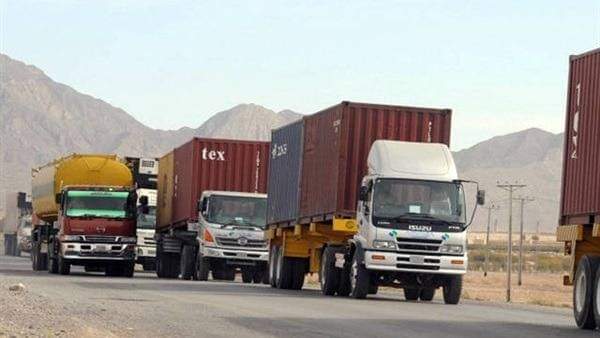
Taxes .. Another Parallel Battle to Khartoums War
Khartoum - Moatinoon
Othman Daf Allah, a resident of Shendi city, located 170 kilometers north of Khartoum, left his truck (Mitsubishi Jumbo) on the western Salvation Street, at the entrance to Omdurman city, heading towards Al-Obied city. The truck was loaded with goods but was stopped by the Rapid Support Forces, who demanded a significant amount of money to allow him to pass.
We met with Othman Daf Allah while he was having tea with his friends at a cafe in the city. He abandoned his truck and belongings over a month ago, and he is currently unemployed and unaware of the fate of his truck and the goods.
He said that he is not the only one facing this problem; there are hundreds of his fellow truck drivers who have encountered the same issue at the soldiers checkpoints since the outbreak of the Khartoum war.
The Sudanese market across cities and regions has seen a significant decline in the volume of goods and commodities due to the war, especially in the import and export sectors. According to official statistics, the trade volume of consumer goods has decreased from 2.4 billion dollars to 690 million dollars since the outbreak of the war in the capital Khartoum in mid-April of the past year.
Amid the phenomenon of large-scale migration to safer cities in Sudan, citizens suffer from severe shortages of goods and soaring prices, making it challenging for low-income families to afford basic necessities and cope with living conditions.
Othman Daf Allah expressed great perplexity about his situation, as his only source of income has been cut off, and he supports a family of seven, as he mentioned. He directed his anger towards the way soldiers from both conflicting sides in Khartoum deal with drivers, demanding significant levies in exchange for releasing trucks loaded with goods, adding, The required amount for each truck has reached 3 billion Sudanese pounds.
The battles between the army led by Abdel Fattah al-Burhan and the Rapid Support Forces led by Mohamed Hamdan Dagalo, known as Hemedti, have led to an 85% decline in land transportation, according to statements from an official in the subsidiary transportation room.
Amidst this harsh reality, soldiers heavy levies on traders, along with the rising transportation costs and the lack of security on the roads connecting the capital Khartoum to other cities in Sudan, raise concerns among many traders in Khartoum markets, whose warehouses have been spared from looting and burning.
Abu Mohammed, a Jordanian investor in Khartoum who owns a detergent factory, revealed that the cost of transporting manufactured products from Khartoum to Medani city, 200 kilometers away, has reached 5 million pounds, compared to just 250,000 pounds before the war. He continued, We are caught between two fires: the risk of keeping goods in warehouses, leaving them vulnerable to theft and looting, and the fire of high transportation costs and levies imposed by soldiers at road checkpoints.
Sudan has witnessed a mass exodus of investors, businessmen, and factory owners fleeing the wars devastations, which have destroyed infrastructure and essential services. Large factories and companies have laid off employees and workers and liquidated their businesses, while others have granted their employees unpaid leaves. Some businesspeople and investors have transferred their commercial and investment activities to Egypt, Ethiopia, and neighboring countries.
Hundreds of thousands of Khartoum residents who have not left the city are facing challenging humanitarian conditions due to the suspension of their work, widespread power and water outages, and food shortages. Meanwhile, the promised humanitarian aid has not reached them periodically.
A report issued by the United Nations High Commissioner for Refugees revealed that 200,000 people fled during the past week, estimating that nearly half of Sudans population is in urgent need of humanitarian assistance.

